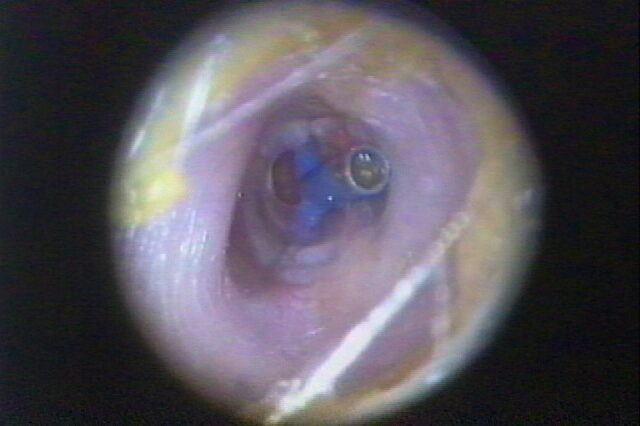University of Florida Researchers Add to the Knowledge Base About Quinolone Toxicity

Investigators at the University of Florida are at the forefront of research into toxicities associated with commonly used ear medications, notably ototopical quinolones. Patrick Antonelli, M.D., FACS, chair of the UF College of Medicine Department of Otolaryngology, has been an author of several studies that have shown an association between quinolone use and delayed tympanic membrane healing and increased risk of perforations requiring tympanoplasty.
In one analysis published in Clinical Infectious Diseases in 2017, Antonelli and UF colleagues retrospectively analyzed insurance data for 96,595 children to compare the rates of eardrum perforations after use of two commonly used ear drops, quinolones and neomycin, following tympanostomy tube placement. They found that children who received quinolone ear drops after tube placement were 60 percent more likely to develop eardrum perforations that required surgical repair compared with children receiving neomycin ear drops. The study also suggested that the concomitant use of steroids further increased the risk of tympanic membrane perforations.
“Quinolones have been considered to be safe largely because of a perceived absence of undesirable side effects, especially with regard to a lack of toxicity in the inner ear,” explains Antonelli. “Our research, however, suggests that we must be ever-vigilant in our use of quinolone ear drops until a safer alternative becomes available.”
Antonelli and his team at UF Health also have conducted several experimental animal studies to examine the effect of different antibiotic eardrops on the tympanic membrane. In a mouse model, ototopical quinolones reduced fibroblast viability and collagen and alpha-tubulin protein levels. In a rat model, ototopical quinolones delayed tympanic membrane healing in a drug-specific manner, with ciprofloxacin having a greater impact than ofloxacin.
The research by the physician scientists in the UF Department of Otolaryngology will help advance our knowledge of quinolone toxicity.